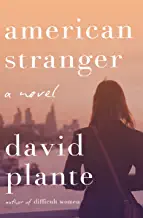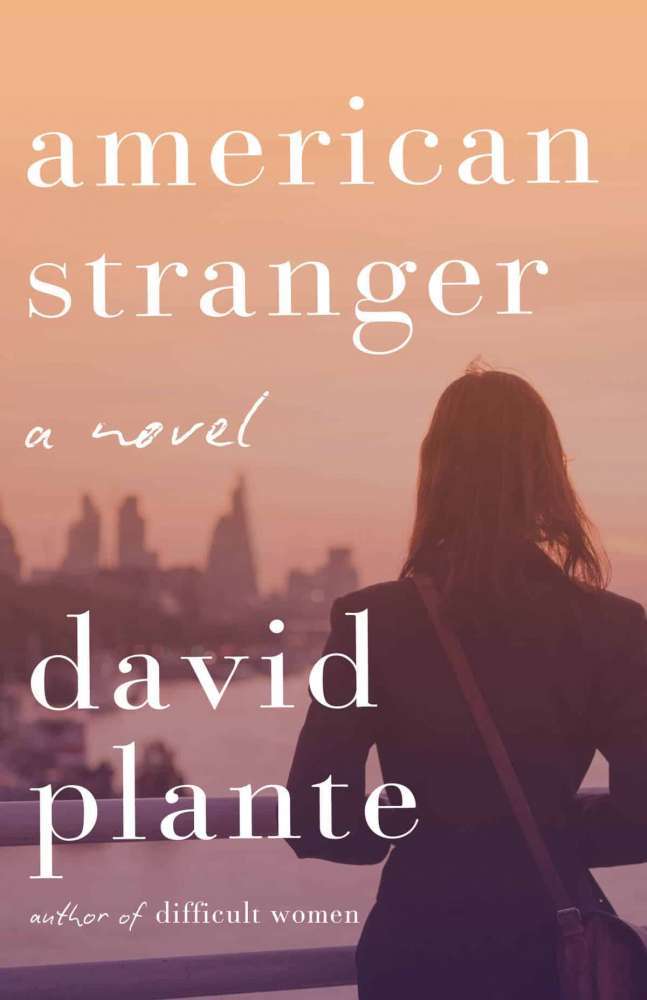American Stranger
Brought up in a secularized Jewish household on Manhattan’s Upper East Side, Nancy Green knows little about her parents’ past. She knows they were World War II Jewish refugees who were able to escape Germany with precious family heirlooms that are constant reminders of a lost life and a world about which Nancy knows very little.
In David Plante’s novel, American Stranger, (Delphinium Books; January 9, 2018) the main character, Nancy, has a longing for some kind of spiritual connection that first leads her into an encounter with a Hasidic Jewish man who, unable to find meaning in his own religion, has taken vows to become a monk. She then becomes romantically involved with Yvon, a Catholic college student in Boston where she is studying for her master’s degree in English literature. Trying to escape the clutches of Catholicism and his overbearing mother, Yvon finds temporary refuge in Nancy and sees her as an escape from the insular enclave of Franco-Americans where he has spent most of his life. Their highly erotic, tempestuous relationship frightens both of them until a tragedy in Yvon’s life eventually pulls them apart.
Devastated by the breakup, Nancy ends up marrying a Jewish man from London, hoping to find herself with a man of her own religion. However, her new relationship pales in comparison to her deep emotional connection with Yvon and, sadly, ends, inspiring Nancy to go back to Boston to track down the man who, she realizes, is the great love of her life.
A storyteller who can create such vivid imagery and an engaging plot lines but be equally engaging and have his own story worth sharing— and he does! Recently, we had an e-chat with David Plante who shared with us how he went from writing memoirs to literary fiction and how he incorporates religion and spirituality in his works.
BookTrib: Your last two books were memoir style. We have a memoir writing contest going on now, what advice would you give our entrants and take us through the process of writing those books?
Plante: My advice would be to keep a diary. In her diary, Virginia Woolf often wrote that she would use it later as the source of an autobiography. I have kept my diary since I was 19, in 1959, when I first came to Europe, and in it have tried simply to describe people and events, leaving aside interior thoughts and feelings, to try to make the people and events as vivid as possible. Also, a diary can spur memory.
Becoming a Londoner and Worlds Apart, two recent books of memoir, in fact come directly from my diary. They are not memoirs, though dates are left out. The second volume was called a memoir by the publisher for expedience.
One of the problems of using the diary for the basis of a memoir is that the diary has no shape— and shapelessness is a fault with the editing of ‘Becoming a Londoner’ and ‘Worlds Apart— and a memoir needs shape. I suspect the shape would come from the sequence of major events in the life of the writer with interconnecting passages.
The diary is kept in the Berg Collection of The New York Public Library, and is added to every few years.
BookTrib: Tell us about the new book and what can people expect in this book that’s different from others?
Plante: Every writer, I should think, would like his or her novels to be unique. That depends on the uniqueness of the vision the novelist has. If there is any uniqueness of vision in ‘American Stranger,’ I believe that comes from the impulse in me as a writer to reach beyond the immediate to what is eternal. I am now working on a novel called, in fact, Eternity. I don’t search for uniqueness in experimentation, as much as I admire this, but I do keep to a rather traditional form and try to infuse it with something much more than the form. How I do this is to see in every character what I can only call a moral and spiritual helplessness- that is, there is something beyond them that they are in the helpless thrall of.
BookTrib: You wrote Difficult Women in the 1980s. With the #MeToo campaign and the barrage of women now coming forth about sexual harassment, where do you think your book now fits in the current discourse?
Plante: Oh dear, I never think of current discourse when I am writing, not in my diary nor in my fiction. I try to be a witness, looking and listening, and I try to be as honest as I can in recording what I see and hear. The book was chosen as one of the best of 2017 by the New York Times, with special commendation for its “excruciating honesty.” In fact, I am always worried about the influence of current discourse on a work of writing as this quickly dates, and is one of the reasons why I think the novels of John Updike date.
BookTrib: Religion plays a key role in your writings. How central is religion and faith to your role as a novelist?
Plante: There is, as has often been stated, a difference between religion and the spiritual. There is no doubt that the religion I was brought up with, Roman Catholic, has had a very deep influence on me, but I have let go of most of the rules and regulations of the religion and retained a profound sense of the spiritual, which, for me, is an awareness of something great, grand, sublime that is beyond us and which we long for. This is the awareness in which all my novels are written.
Buy this Book!
Amazon





Knew David, his parents, his brothers as well as his Lynch St. home ( mine on Cambridge St.) and the beautiful Waterman Lake home. The Church was a place for family Baptisms, Weddings ( mine 1966),as well as funerals. Happy to read David’s talents , much enjoyed. Thank you, David…..a life well lived…..your’s!
Andrée